Euro 2020: Why do we hide during penalty shoot-outs?
- Published
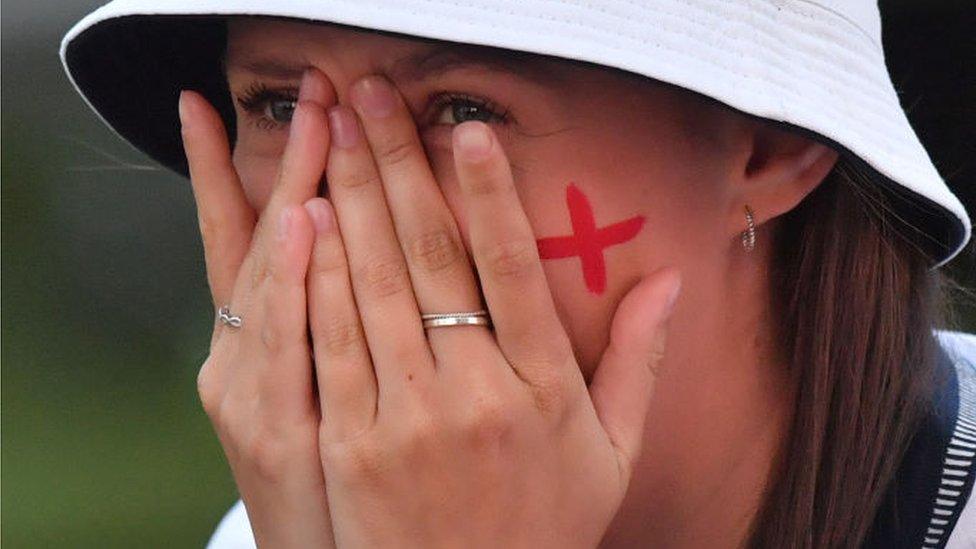
Some moments of sport are so difficult to watch, fans have to cover their eyes
England fans have waited more than five decades to see the Three Lions in a major tournament final. So when the big moment finally arrives, why might some of us be cowering behind the sofa?
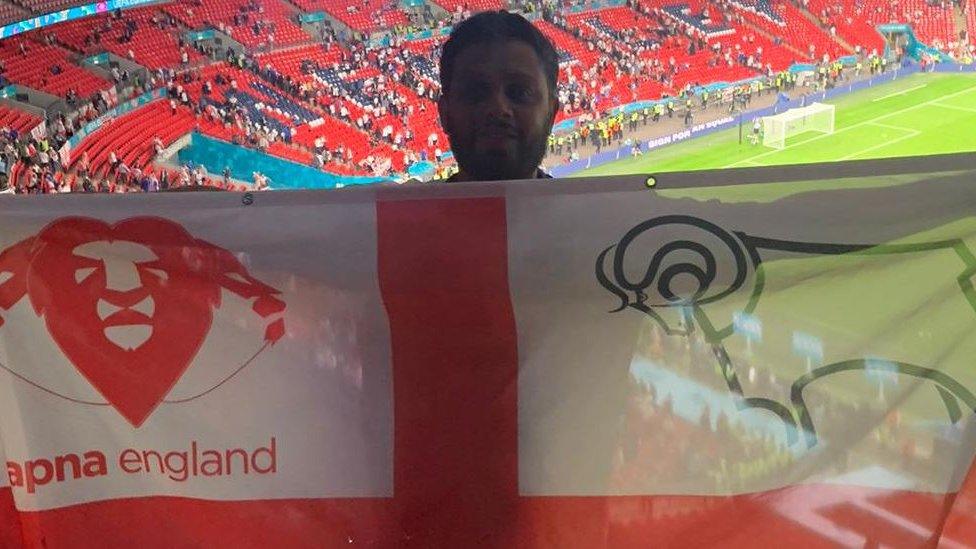
When England's match against Denmark went to extra time, Pav Samra says he felt sick
Pav Samra was lucky enough to get a ticket for Wembley to watch England's semi-final win against Denmark - but he far from enjoyed every second.
"When it went to extra time, I felt physically sick," says Pav, from Derby.
"And when we were awarded the penalty, I had my head in my hands.
"At home, at least you can pace around the room to relieve the nervous tension, but when you're in the ground, there is nowhere to go.
"There was a guy sitting next to me who had been recording parts of the match on his phone and I said to him, 'Please don't record the penalty - you'll jinx it'.
"He thought I was joking but I wasn't."
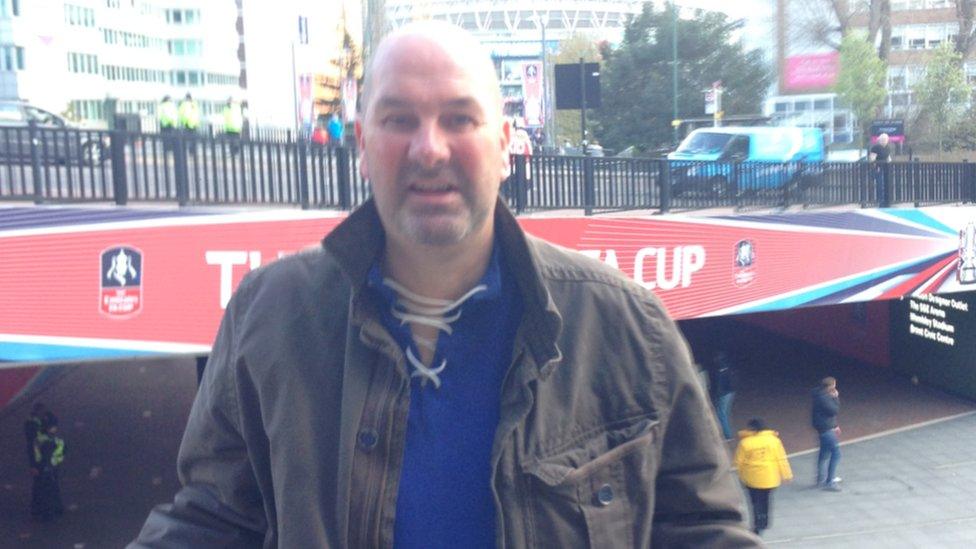
Tim Hill says he has had to leave football grounds during matches due to suffering extreme nervousness
It's a feeling most football fans are all too familiar with.
Everton supporter Tim Hill, from Nottingham, suffers such extreme nerves while watching games that on occasions he has left the stadium - including as his team were on course to win an FA Cup final in 1995.
"I was sitting there literally shaking," he says.
"When Everton scored, I had to leave my seat.
"I spent most of the rest of the match walking around the Wembley concourse and I could only go back to my seat five minutes from the end, when I felt we actually could win it."
Tim, a Royal Mail network driver, says he is not the only person in his family who cannot face watching sport's crucial moments.
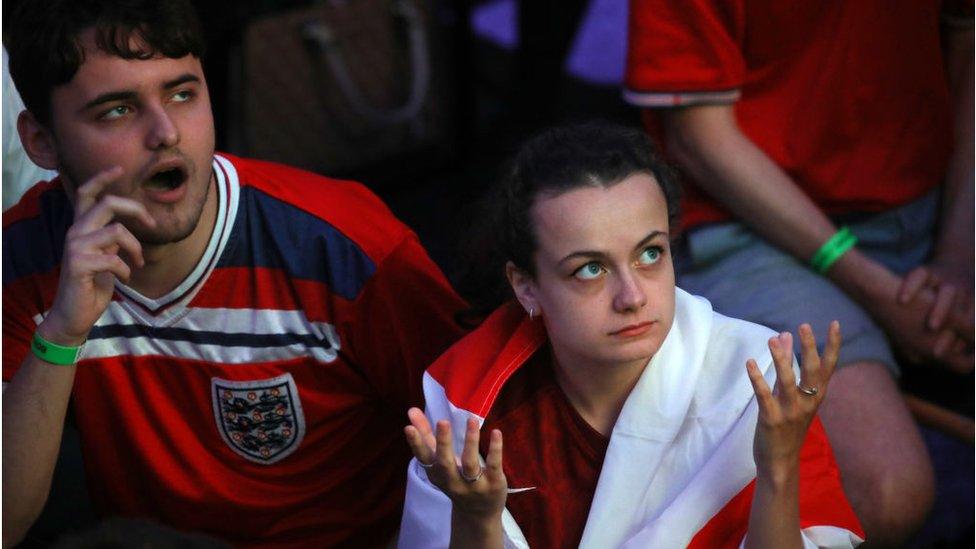
Some fans fear their team falling short of their expectations, according to a psychologist
"One of my brothers had to go to the park instead of watching the 1966 World Cup final while my middle brother took himself off to the shed for England's 1970 World Cup match against West Germany," he says.
"It's not rational behaviour - I can't explain why we get so het up."
While not everybody has to leave their seat as their team steps up to the spot, many can identify with the feeling of agony.
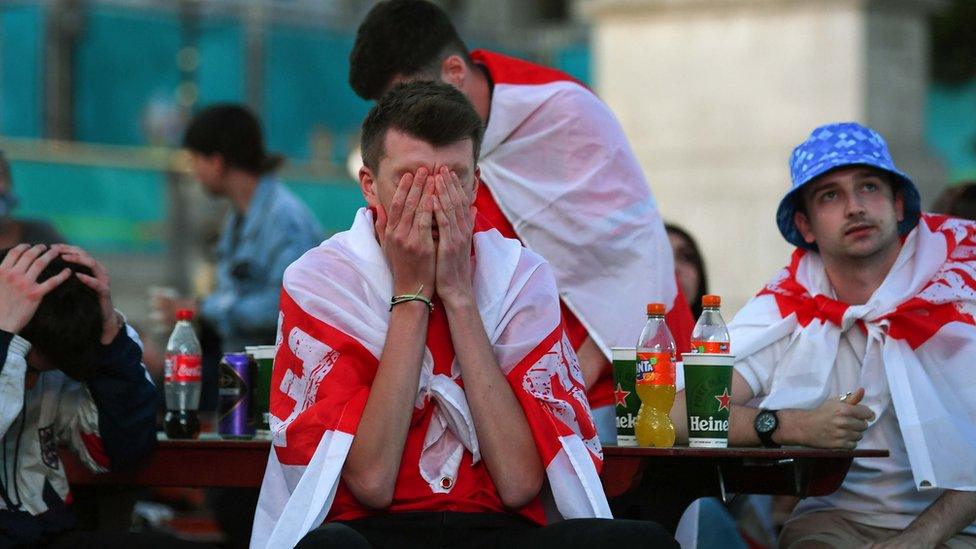
Many fans get really nervous when their team play
Malcolm Shearstone, from Bulwell in Nottingham, says when penalty shootouts take place, he has to cover his face with his hands.
"I do peep through my fingers but I get really nervous - I think most football fans do."
"I was 10 years old when we won the World Cup so it's a long time to watch England lose football. It does take its toll."
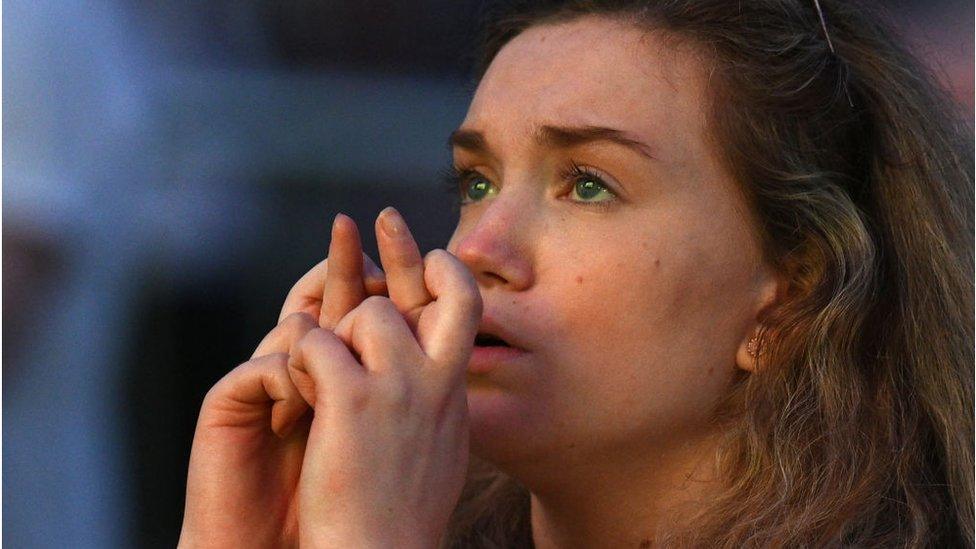
Moments of sporting success are rare for many fans
Mark Griffiths, a psychologist at Nottingham Trent University, says as an England fan himself, he has personally experienced extreme stress.
While watching a televised football match, his partner became irritated with what she thought was a neighbour's thumping bass music coming through the walls.
"It was only when she said, 'They are playing that really loudly tonight' that we worked out it wasn't beat music at all. It was the sound of my heart pounding because the football was so tense," says Dr Griffiths.

Dr Griffiths believes fans' need to hide during stressful moments is a form of self-preservation
"I know I am going to get so emotionally wrapped up in Sunday's game against Italy," he says.
"For some England matches, I go upstairs and hide and don't come down until I know what the result is. I can't take the stress.
"You can see fans around the stadium hiding their faces - and even some of the players and managers."
Dr Griffiths says many fans' need to cower behind sofas, cover their faces or leave the room altogether when games get stressful is a form of self-preservation.
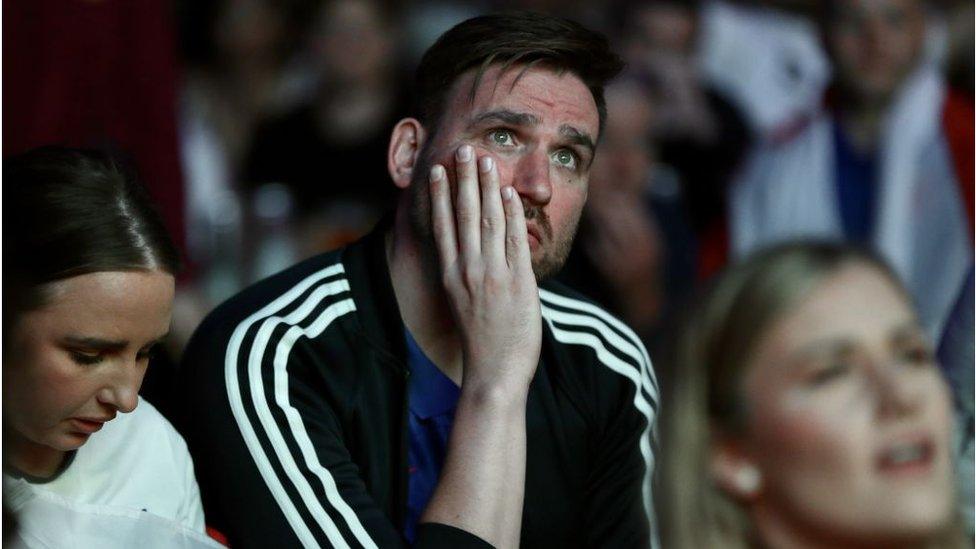
Studies have shown how stressful watching a match can be for football fans
Studies - such as one conducted around the Netherlands' exit from Euro 96, external - have shown how important sporting events may provoke such high levels of stress among fans they can trigger cardiovascular disease.
"It's about self-protection," he says. "People engage in strategies to make themselves feel better.
"And penalty shootouts are a very extreme experience. In most football matches, that doesn't happen and it's very rare that the outcome of the match is decided in the last second.
"They are fantastic entertainment if you are not involved. Unfortunately, up until recently, England were mostly on the losing side. Many fans are scarred by the number of occasions on which their team has choked."
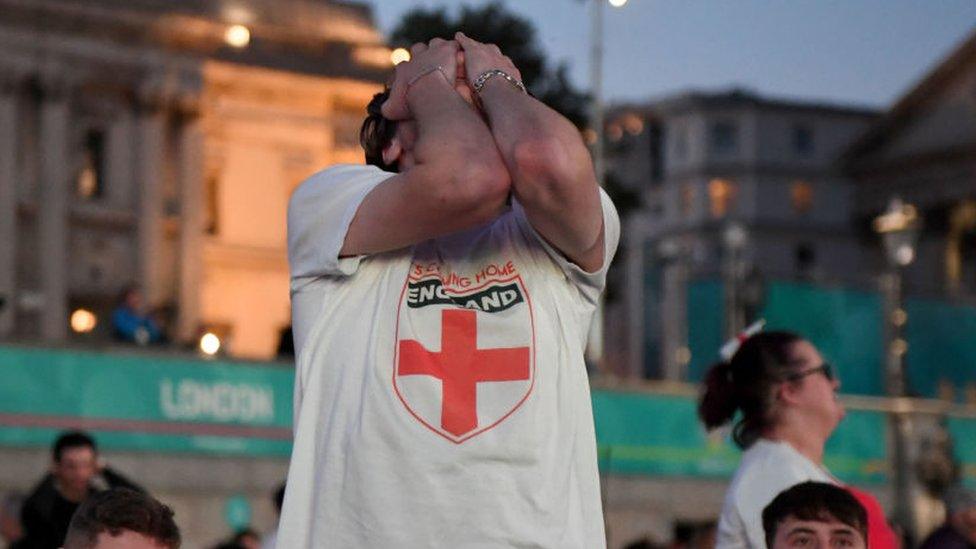
People struggle to deal with repeated disappointment
Dr Jamie Barker, a senior lecturer in sport and exercise psychology at Loughborough University, says many fans - like the athletes they watch - struggle to deal with potential failure.
"It's like an avoidance strategy."
"People's expectations are so high, the reality becomes unbearable.
"It's similar to the fight or flight theory - some people are motivated by the fight but others want to run away because they can't deal with the fear of falling short of their own expectations."

Dr Barker says England fans can change their mindset and learn to regard such big moments as positives
He says England fans of a certain age may also be experiencing "learned helplessness" - a state of mind that occurs when people believe a bad situation is unchangeable.
"It used to be you'd hear people say, 'We never win on penalties' or 'We always lose to the Germans'.
"But you can change that kind of mindset and it would appear that, in recent times, the England players have done just that.
"It's about saying, 'Let's look forward to the opportunity' and seeing these big moments as a positive. After all, as a fan these are the times you wait your whole life for.
"If England were to win the final, it would generate a collective sense of euphoria across the country."
That said, Dr Barker admits he finds it difficult to take his own advice.
"I actually got tickets for the England-Germany match which was amazing, but I stupidly turned down tickets for the final.
"They were a lot of money and I thought, 'I'm not sure if England will make it'. I should have probably been more positive myself."

Follow BBC East Midlands on Facebook, external, Twitter, external, or Instagram, external. Send your story ideas to eastmidsnews@bbc.co.uk, external.
Related topics
- Published8 July 2021
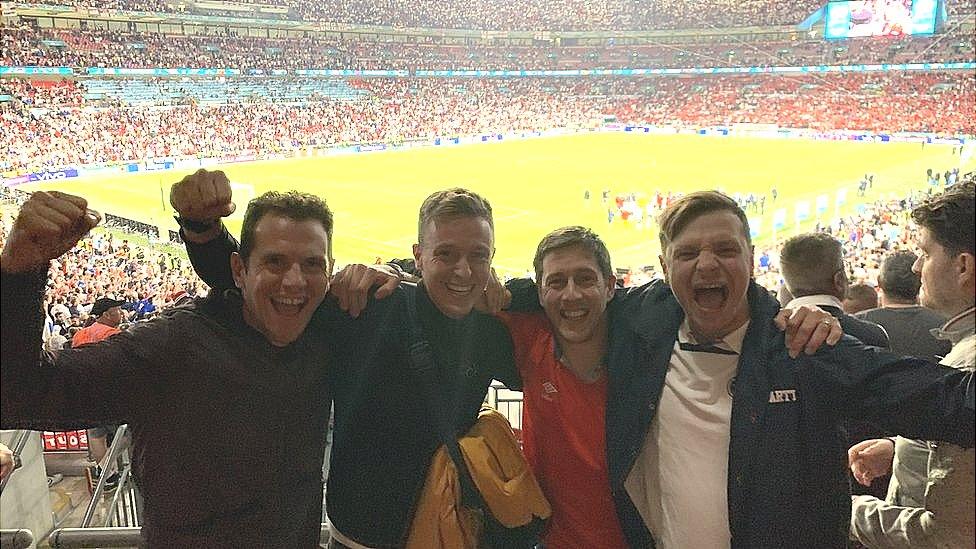
- Attribution
- Published8 July 2021
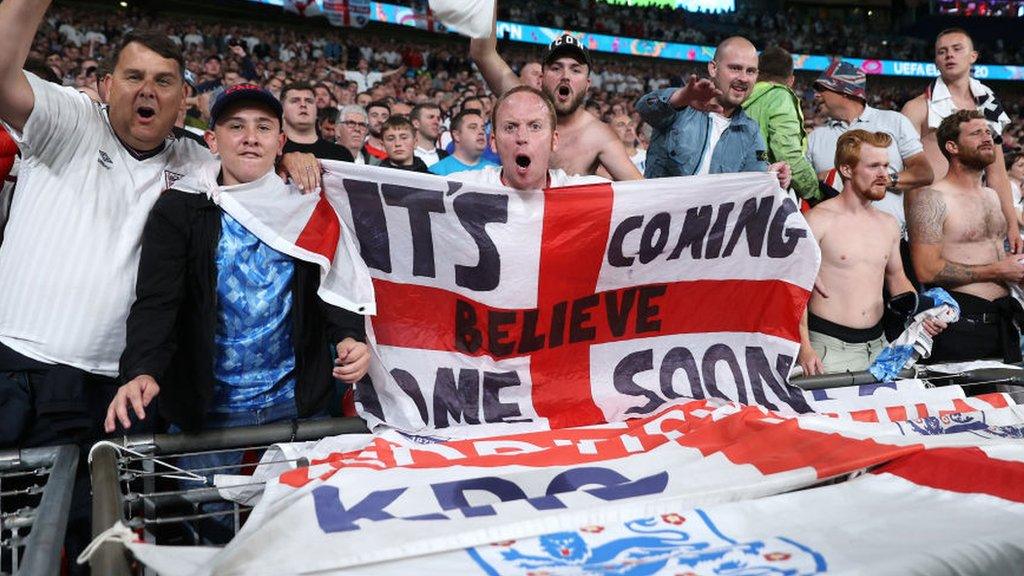
- Published8 July 2021
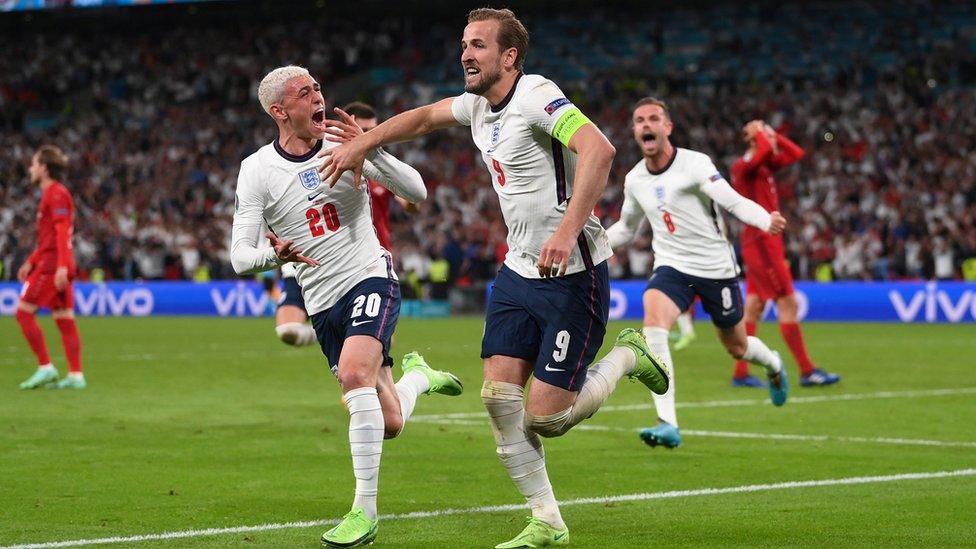
- Attribution
- Published8 July 2021